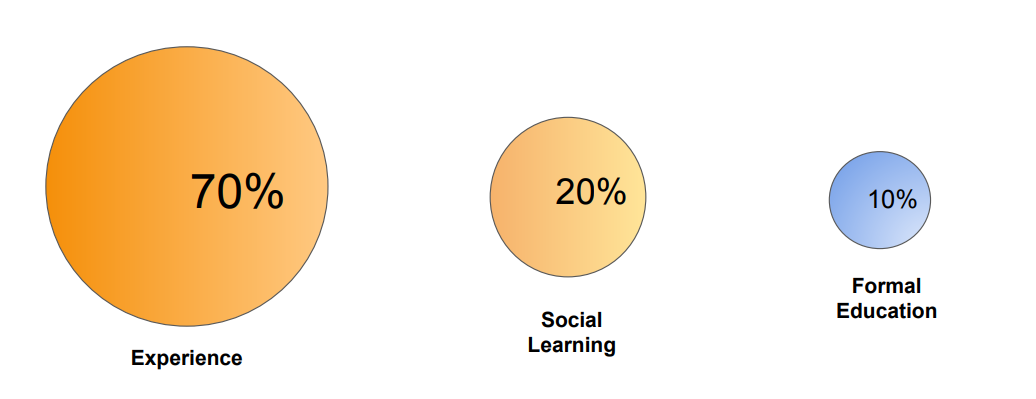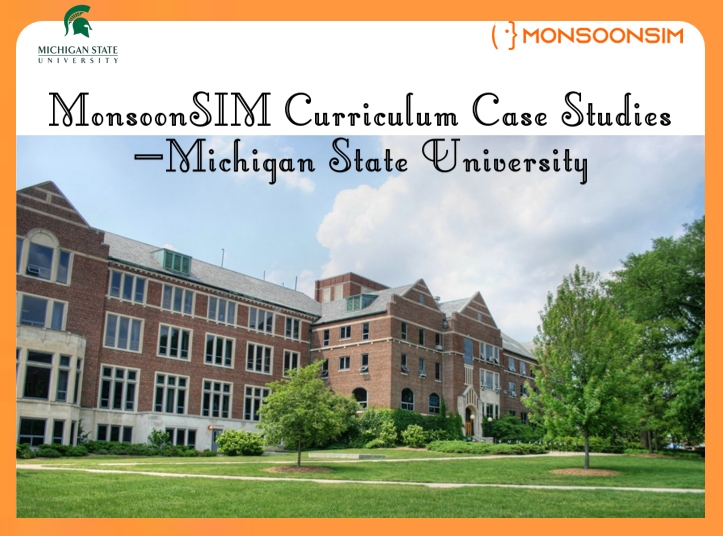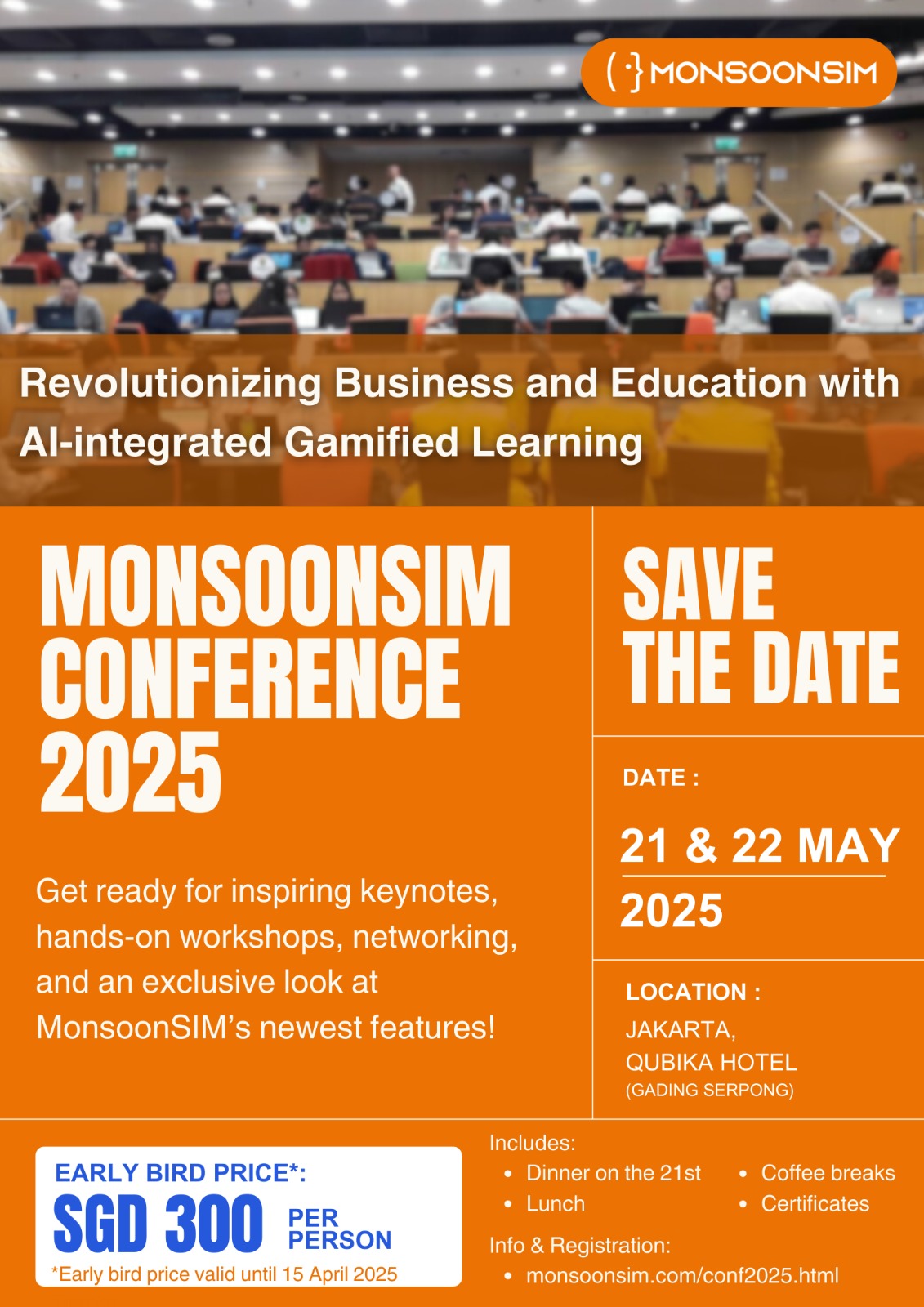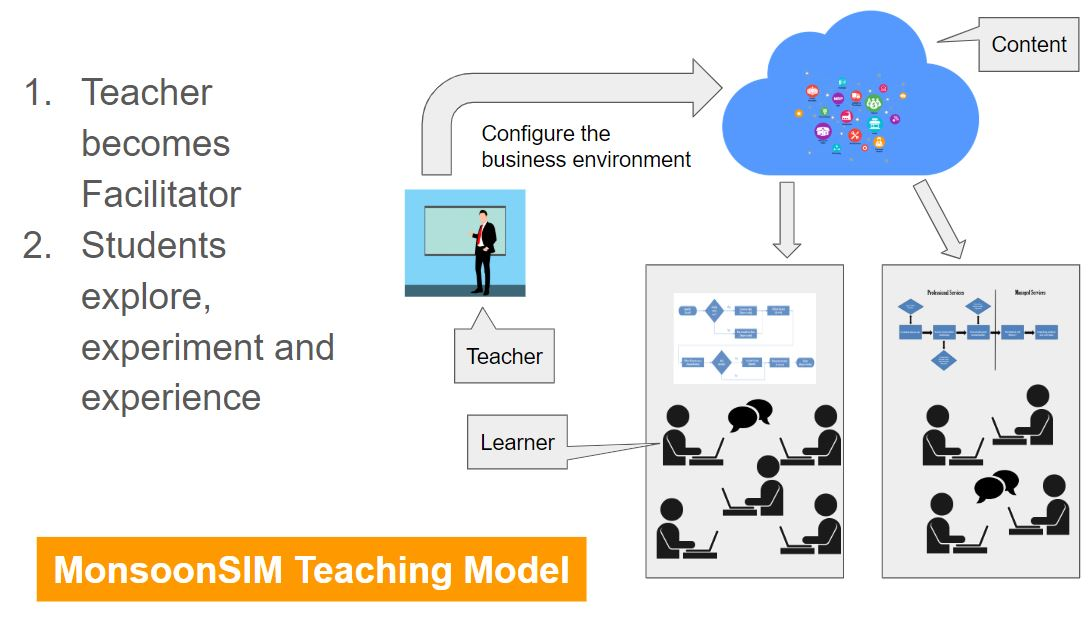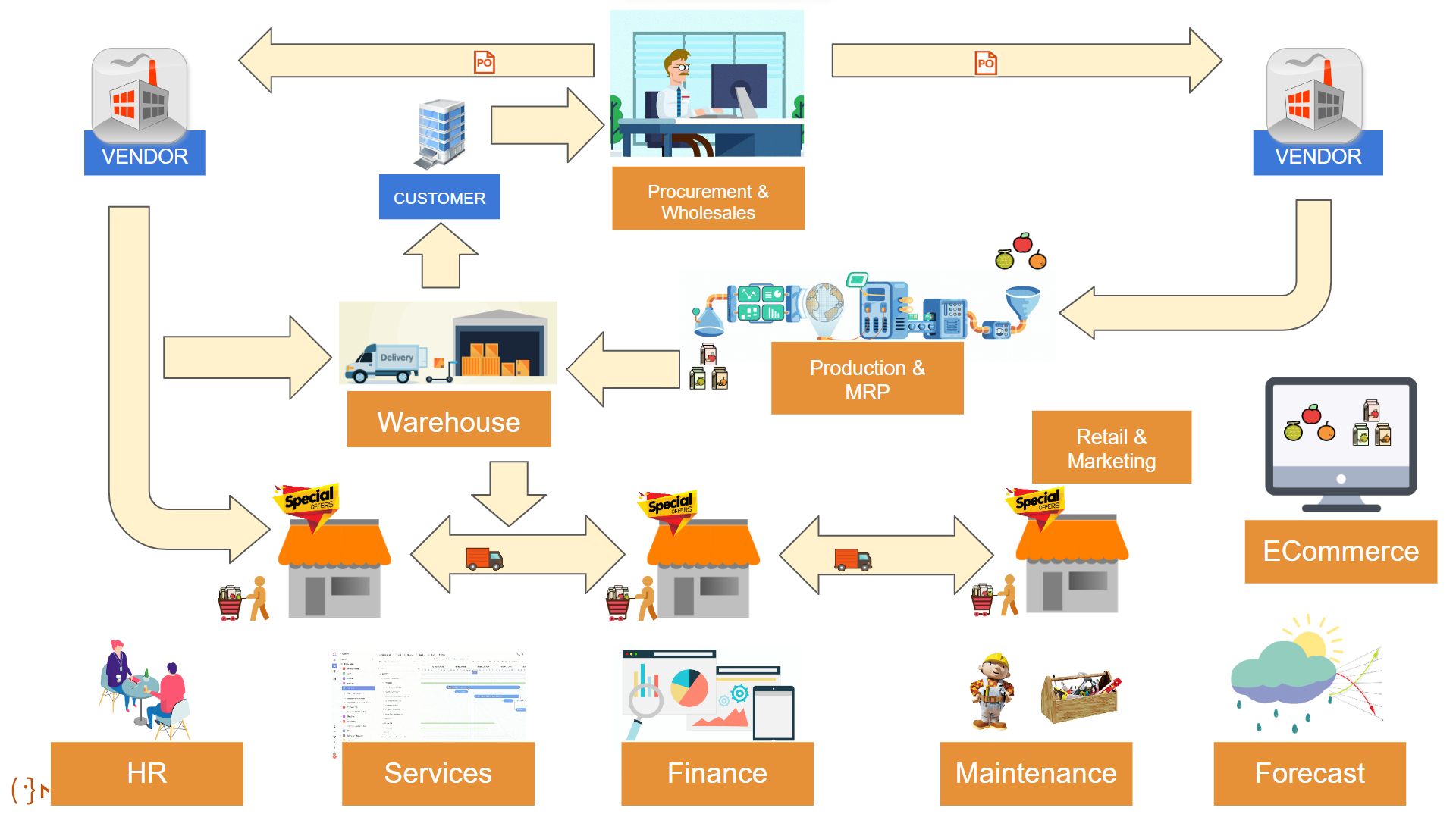Introduction to Enterprise Resource Planning Courses for Beginners (Introduction to the 14 departments)

Dec 17, 2024
- Enterprise Resource Planning (ERP) Course Series
- What will be in the ERP series:
- Corporate Benefits of MonsoonSIM’s ERP Course Series
- Who should run the ERP course series
- Learning Outcomes of ERP course
- Overview of Knowledge Outcomes:
- Overview of Skills
- 14-part Enterprise Resource Planning MicroCourse
- ERP 101: Retail Business 1
- ERP 102: Mastering Demand Planning in Retail
- ERP 103: Retail Business 3
- ERP 104: Retail Business 4
- ERP 105: Wholesales Business 1
- ERP 106: ERP Business Concept 1
- ERP 107: Simple E-Commerce Business
- ERP 108: Basic Manufacture 1
- ERP 109: MRP (Material Requirements Planning) 1
- ERP 110: MRP (Material Requirements Planning) 2
- ERP 111: Basic Maintenance 1
- ERP 112: Human Capital Concept 1
- ERP 113: Service Business 1
- ERP 114: Simple ERP Business Concept 2
- Industry-Specific Applications
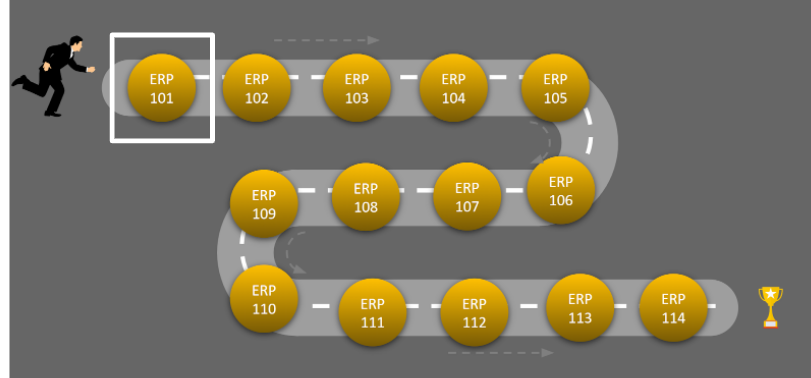
Enterprise Resource Planning (ERP) Course Series
We at MonsoonSIM are proud to introduce our newest Micro-Course series: Introduction to Enterprise Resource Planning (ERP) for beginners. The ERP course series is a 14-part series to take business students through the process of running a complex multi-departmental business. The 14-part ERP course begins from ERP101 to ERP 114.
ERP stands for “Enterprise Resource Planning.” The standard definition is the integrated management of main business processes, often by software and technology. ERP software typically integrates planning, purchasing inventory, sales, marketing, finance, human resources, and more.
ERP software is widely used, across industries by people with different backgrounds. Large organizations (250 or more employees) are the leaders in the use of ERP solutions, of which 87.3% have implemented ERP systems. On average 26% of workers use their ERP software
To confidently make use of ERP software or implement it into a company; managers and end-users need to understand the business process. Anyone involved in enterprise resource planning should know the functions of each department, the flow of transactions, and make meaning of their business data. This is what the ERP- Micro course aims to address.
As “More to teach” and “Easier to teach” as our core mission, we have designed this for all skill levels. Students will start from the very beginning from running retail stores all the way to managing a fast-moving WholeSales and E-commerce enterprise throughout the series.
What will be in the ERP series:
In the Micro-course teachers will be able to run their desired course quickly and efficiently. MonsoonSIM has added pre-prepared class materials including explanations of the business departments, the flow of transactions, KPIs, and learning outcomes. The students will get hints on how to perform well as a team, such as things they should be keeping an eye on and what decisions they need to make, (for example cash management, optimal selling price)
If you are unfamiliar with the MonsoonSIM experiential teaching and learning platform please watch this video
Corporate Benefits of MonsoonSIM’s ERP Course Series
MonsoonSIM's Enterprise Resource Planning (ERP) Micro-Course Series is not only tailored for academic institutions but also serves as a powerful tool for corporate training and workforce development. Designed to simulate real-world business environments, this course equips employees with essential cross-functional skills, empowering them to thrive in today’s competitive corporate landscape.
Why MonsoonSIM is Perfect for Corporate Training
Practical Learning for Real-World Challenges: MonsoonSIM's ERP micro-courses bridge the gap between theoretical knowledge and practical application, enabling employees to experience how decisions in one department affect the broader business ecosystem.
Customizable for Corporate Objectives: The course content can be aligned with your company's specific goals, offering modules focused on finance, procurement, marketing, and supply chain management. Corporate teams can focus on areas like improving cash flow management, optimizing inventory, or enhancing decision-making.
Scalable and Interactive Training for Teams: Whether you're training a small team or an entire department, MonsoonSIM’s gamified approach ensures high engagement, fostering collaboration and strategic thinking among employees.
Immediate Impact with Business Simulations: Employees apply concepts directly within simulations, allowing them to learn from their decisions in a risk-free environment. This leads to quicker adaptation and better performance on the job.
Tailored Modules for Corporate Training Success
ERP 101: Introduction to Retail BusinessPerfect for entry-level employees, this module introduces fundamental concepts like financial reports and basic procurement, ensuring a solid foundation for all participants.
ERP 108: Basic ManufacturingTrain your production teams on the essentials of manufacturing operations, such as raw material procurement, machinery utilization, and production efficiency.
ERP 113: Service Business and Customer ManagementEquip customer service teams with skills to manage service requests, handle manpower scheduling, and improve customer satisfaction.
ERP 114: Multi-Departmental Business OperationsSenior managers and executives can gain a holistic understanding of all 14 interconnected business departments, fostering strategic leadership and cross-departmental collaboration.
Have questions about integrating MonsoonSIM into your corporate strategy? Contact us for a personalized consultation.
Corporate Learning Outcomes with MonsoonSIM
Boost Decision-Making Skills: Through data-driven simulations, employees learn to analyze reports and make informed business decisions. Book a corporate trial.
Enhance Cross-Functional Communication: The integration of departments like HR, Finance, and Logistics improves communication and teamwork.
Improve Operational Efficiency: Teams practice balancing demand planning, inventory management, and resource allocation. Request a demo.
Develop Leadership and Strategic Thinking: Gamified simulations encourage employees to think critically and take ownership of their business units. Learn more about leadership training.
Who should run the ERP course series
This MicroCourse is designed to suit any business studies field and is particularly valuable for teachers running courses in Accounting, Supply Chain Management, Economics, or as a foundational step for Business Analytics programs. It is equally effective for corporate trainers aiming to enhance their teams’ understanding of Enterprise Resource Planning (ERP) processes.
Educators and corporate trainers alike will benefit from the pre-prepared materials, which include detailed explanations of business departments, transaction flows, KPIs, and learning outcomes. With this comprehensive setup, you can efficiently launch the micro-course, allowing students or professionals to operate their business simulations within minutes. Whether you’re preparing students for advanced coursework or training employees to navigate ERP systems effectively, this micro-course provides a solid foundation for deeper learning and practical application.
Ready to revolutionize your corporate training? Start your free trial and see the difference MonsoonSIM can make.
Learning Outcomes of ERP course
The ERP courses are designed to introduce beginner business students to the vast scope of the ERP process, by empowering them to experience operating a multi-departmental enterprise in a simulated economy. By going through the 14-part ERP micro-course, students will gain cross-functional knowledge, practical skills, and experience.
Overview of Knowledge Outcomes:
- Financial Reports
- Financial Ratios
- Marketing Basics
- Supply Chain basics
- B2B wholesales
- eCommerce fulfillment
- Maintenance
- Supply and Demand
- Human Resources
Overview of Skills
- Business Intelligence
- to learn more about business data literacy training find us here!
- Decision Making
- Cross function-communication
- Cash Management
14-part Enterprise Resource Planning MicroCourse
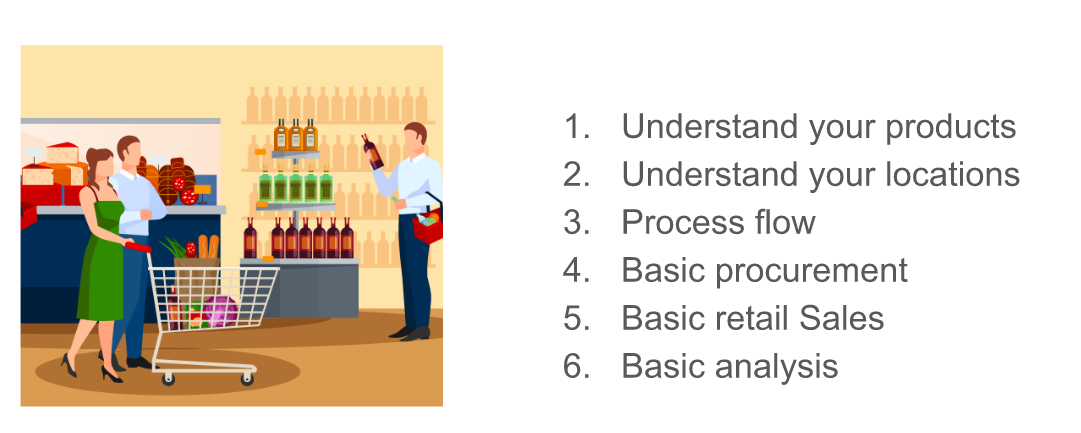
ERP 101: Retail Business 1
Modules turned on: General, Finance, Procurement, Retail
This course is great for first-time MonsoonSIM students. It starts with product and location explanations. The game begins with a simple procurement process flow. This course allows learners to explore and get familiar with the basic screen and menu navigation. The first thing learners will explore is the flow of transactions in the finance department.
The ERP 101 module provides a valuable educational experience for learners, who will learn about basic retail strategy, cover the basics of procurement and also tackle a rudimentary understanding of financial reports.
“The future of a nation lies in the quality of education for young people. We live in a digital age where the crucial question is how to build data-driven professionals to help companies make better decisions. The best way is to connect the concepts of theory with practice.” – Dr. Violeta Cvetksoka from Ss. Cyril and Methodius University in Skopje, Faculty of Economics, Skopje, North Macedonia.
ERP 102: Mastering Demand Planning in Retail
Modules turned on: Finance, Procurement, Retail Sales, Planning/Forecasting

In this module, besides covering the lessons learned in ERP 101 which entail basic retail sales there is an added module for Forecasting. Learners will read demand forecasts and develop strategies to meet the demand variation.
The ERP 102 module provides the perfect chance to facilitate experiential learning for students when it comes to concepts such as demand planning, drawing up procurement strategies and price strategies, as well as ensuring its successful and effective implementation.
“This simulation showed us what really goes into decision making and running of a business. I truly think I learned more by actually getting to utilize a simulated ERP system than I could have within a lecture or a book.” - Broad College of Business, Michigan State University.
ERP 103: Retail Business 3
Modules turned on: Finance, Procurement, Retail Sales, Marketing
This course is the basic retail business but with the added new marketing department. Learners will be able to buy market reports and gain market intelligence to make better pricing, rental space, and replenishment decisions. Learners will also be able to invest in marketing to boost their retail sales.
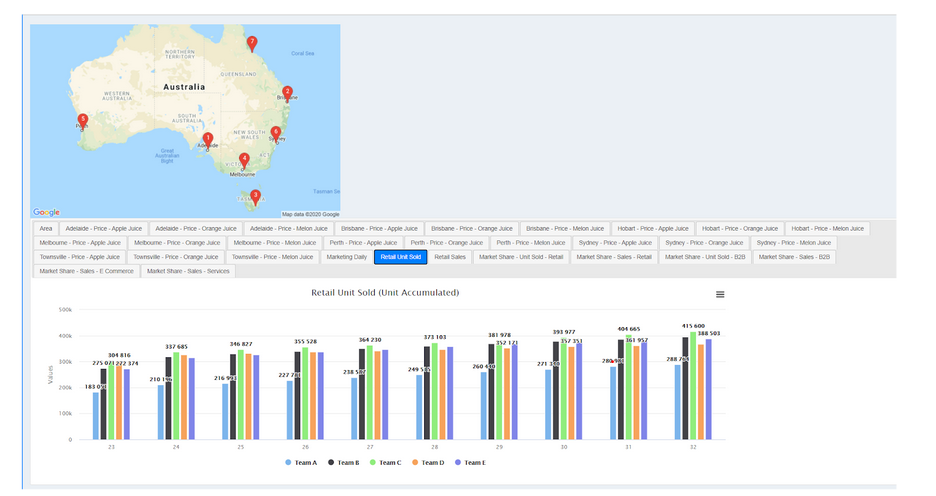
With a heavy focus on marketing and the external environment of the company, students will learn which media is best suited for each product in their company’s portfolio. Students will investigate how much to invest for which media and for which product, gain insights into their competitors, and carefully study the market share.
Learners will study financial data and make informed decisions based on it, instead of relying on intuition or instinct.
ERP 104: Retail Business 4
Modules turned on: Finance, Procurement, Retail Sales, Logistics/Warehouse
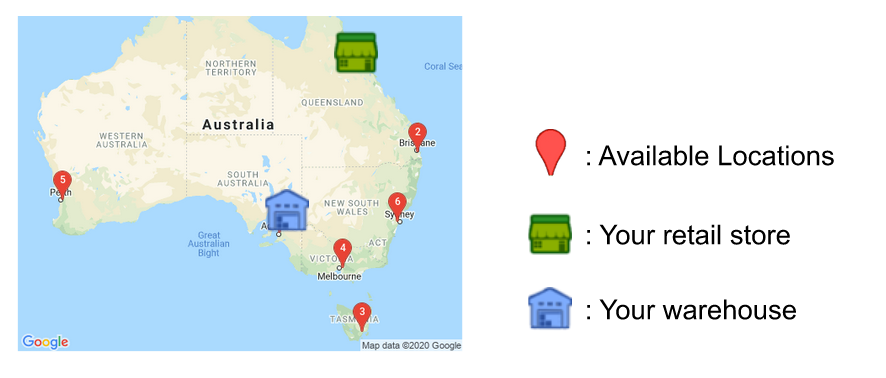
In ERP 104, the additional module of logistics/warehouses enables learners to gain a deeper understanding of the overall business process in addition to retail sales and procurement. Learners must decide where to set up warehouses, how much space to buy, study the length of rental contracts and manage the company’s stock.
Learners will be able to schedule auto-replenishment, consider the advantages and disadvantages of cheaper rent and they will be able to buy warehouses or retail stores. Upon making these financial decisions, they will be pushed to reflect on their purchasing decisions.
“It also has the ability to provide the students with the performance data for them to analyze and use their analytic skills to determine appropriate business strategies. This helps provide the "missing link" in most analytic programs. I have been looking for a tool that helps demonstrate the integration of ERP systems, and MonsoonSIM provides this.” - Severin Grabski, PhD, Faculty Director of the MS Business Analytics, Broad College of Business, Michigan State University.
ERP 105: Wholesales Business 1
Modules turned on: Finance, Procurement, Retail Sales, Logistics/Warehouse, Wholesales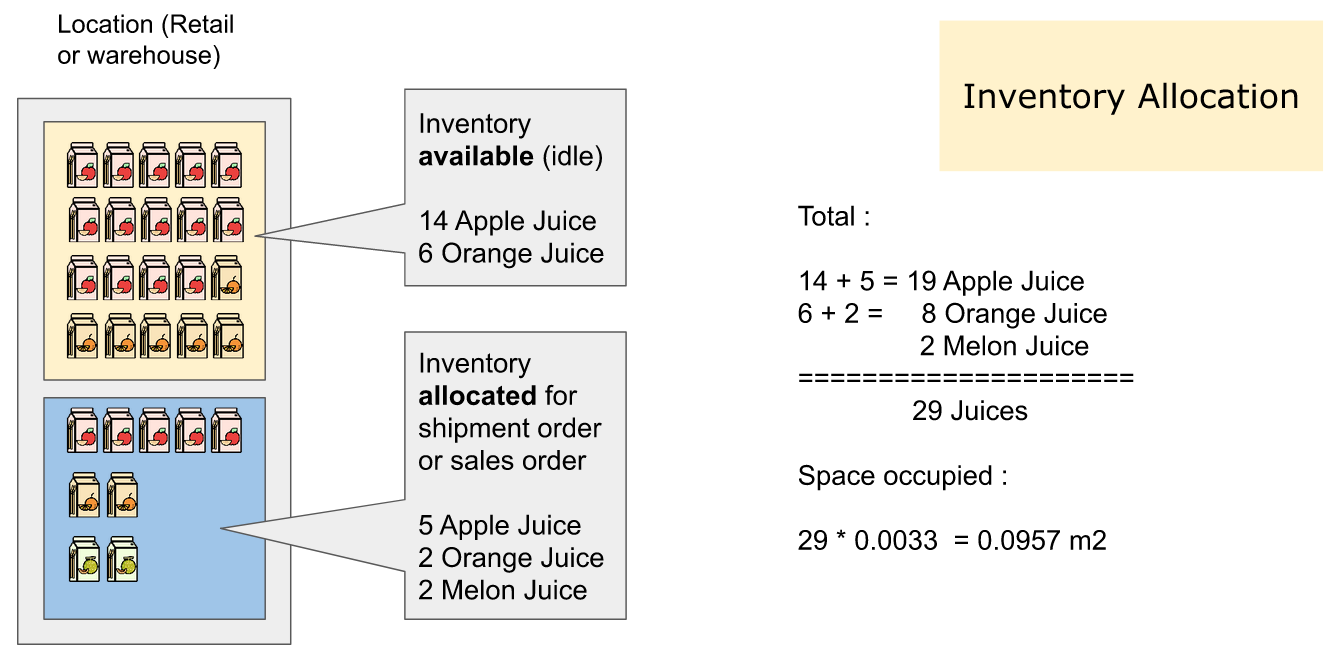
In ERP 105 (Wholesale Business 1), the added business departments are Wholesales with the addition of logistics/warehouse. In addition to the previous retail business process, learners will now experience running B2B transactions while managing stock logistics.
The ERP 105 module allows learners to reflect on which B2B deal to choose, which bid to participate in, and with what prices. Additionally, insights from reports and forecast analysis will also allow learners to study which products will be in high demand, and which products to allocate and stock, thus enabling them to make more informed business decisions.
ERP 106: ERP Business Concept 1
Modules turned on: Finance, Procurement, Retail Sales, Forecasting, Marketing, Logistics/Warehouse, Wholesales,
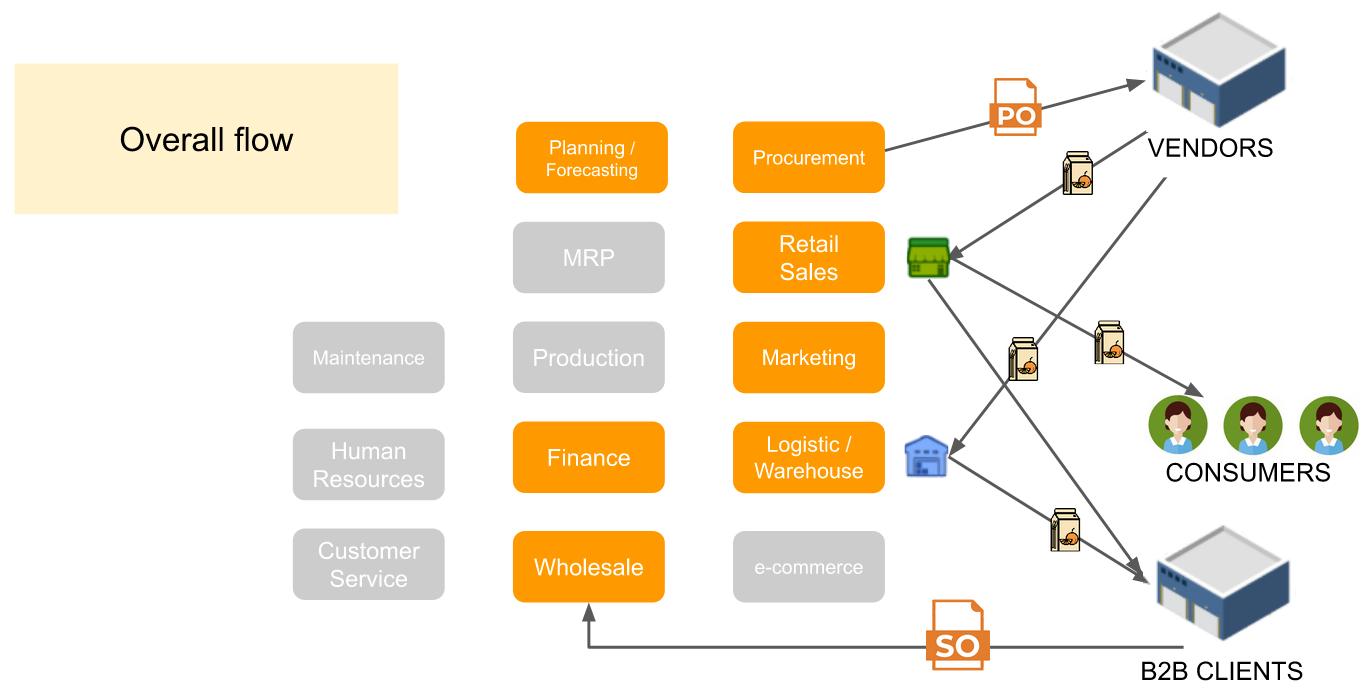
In this module, learners will explore and have a deeper understanding of planning/forecasting and marketing in addition to their wholesale and retail business. The ERP 106 module flows from the procurement stage to wholesale and retail sales, providing the chance for learners to consider more external stakeholders such as vendors, consumers, and other B2B clients.
It provides the perfect chance to facilitate experiential learning for students, covering the learning points such as how to read and analyze functions and charts across the various departments. Such as finance, procurement, retail, marketing, forecast, and warehouse, which involve the B2B process.
ERP 107: Simple E-Commerce Business
Modules turned on: Finance, E-Commerce, Logistics/Warehouse
In ERP 107, learners have a focus point of analysis and reflection on e-commerce activities. Learners will balance how much to buy and sell, consider shipping details to and from stores, and try to get good ratings in e-commerce. Furthermore, from the logistics/warehouse perspective, learners will understand the effect of late or timely delivery and the shipping fees involved.
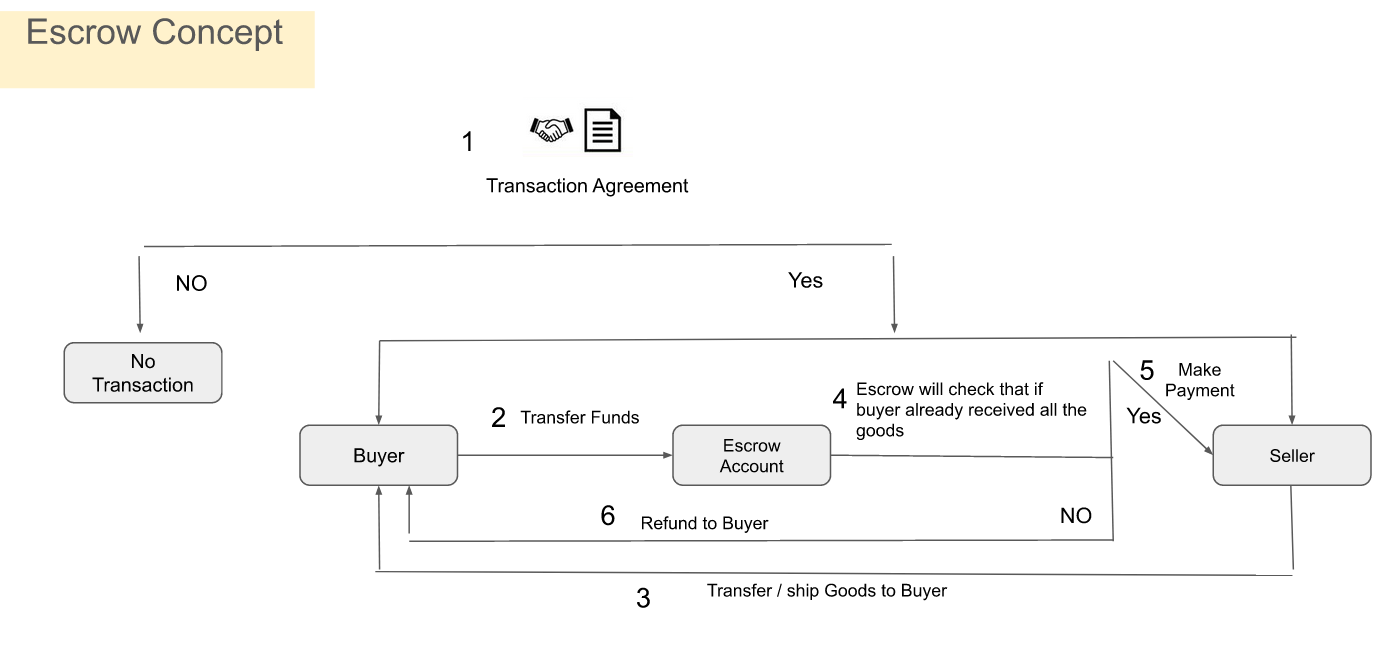
In this course, escrow payments are introduced. Escrow payments and refunds are placed in the case of failed deliveries. Altogether, students will be able to search the e-commerce market and participate by buying or selling.
Through module 107, learners can take the time and effort to learn about allocating stocks from different locations and also manage the performance ratings.
ERP 108: Basic Manufacture 1
Modules turned on: Finance, Procurement, Logistics/Warehouse
Manufacturing covers a broad array of activities and processes that convert raw materials (inputs) into finished goods (outputs), adding value to it through machinery, labor, tools, and more. As an essential sector of Enterprise Resource Management (ERP) manufacturing must be familiar to students.
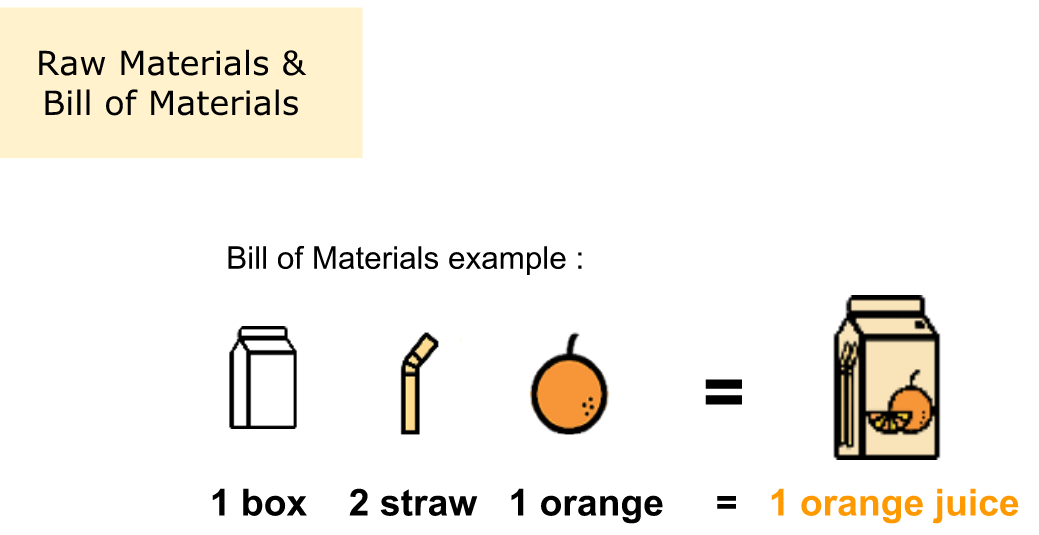
As a learner of the ERP 108 module, this presents an opportunity to learn about the activities and decisions that drive the manufacturing department. This includes renting warehouses, procuring machinery and raw materials, changing production priority, machinery disposal processes, and production reports. From the finance perspective, learners will be exposed to the accounting process involved in manufacturing assets.
ERP 109: MRP (Material Requirements Planning) 1
Modules turned on: MRP, Finance, Wholesale, Procurement, Retail Sales, Logistics/Warehouse
In ERP 109, learners will run their retail and wholesale business but the addition of Material Requirements Planning capabilities (MRP). MRP refers to a supply planning system that calculates the materials and components that are required to manufacture products. MRP considers inventory requirements, identifies the additional components that are needed, and schedules its production and purchase while balancing supply and demand.
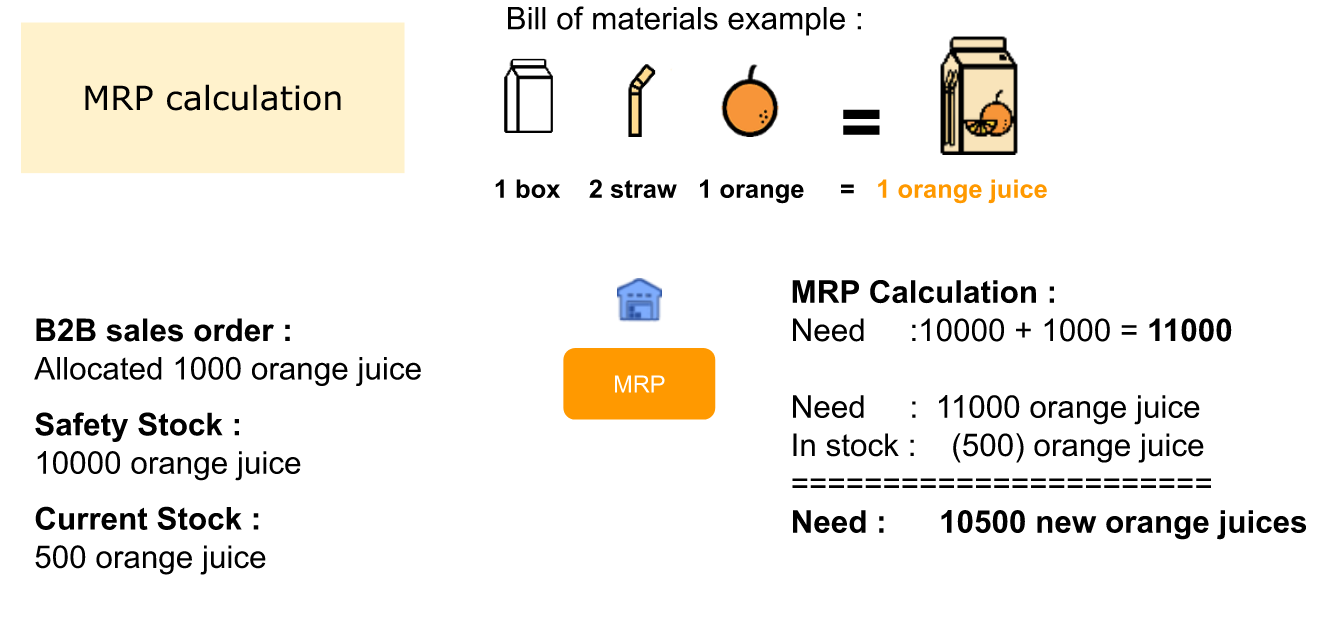
ERP 109 provides learners the perfect opportunity to explore Material Requirements Planning as a whole. Through experiential learning, students will have a hands-on approach in knowing when to trigger Material Requirements Planning. They will discover how MRP calculates the company demands, consider setting safety stocks, practice how to move stock, observe how B2B affects MRP, and more.
“We are extremely happy with student engagement in the simulation and also the holistic understanding of accounting and business processes that students have gained. Students really enjoyed participating in the simulation and they report how much they have learnt from their participation.” - Dr. Christine, Associate Dean Teaching and Learning, Faculty of Business and Law, Senior Lecturer of the Department of Accounting at Deakin University.
ERP 110: MRP (Material Requirements Planning) 2
Modules turned on: MRP, Finance, Wholesale, Procurement, Retail Sales, Logistics/Warehouse, Production, Planning/Forecasting
Similar to ERP 109 module, the ERP 110 delves even deeper into the concept of Material Requirements Planning, involving additional departments of production and planning/forecasting.
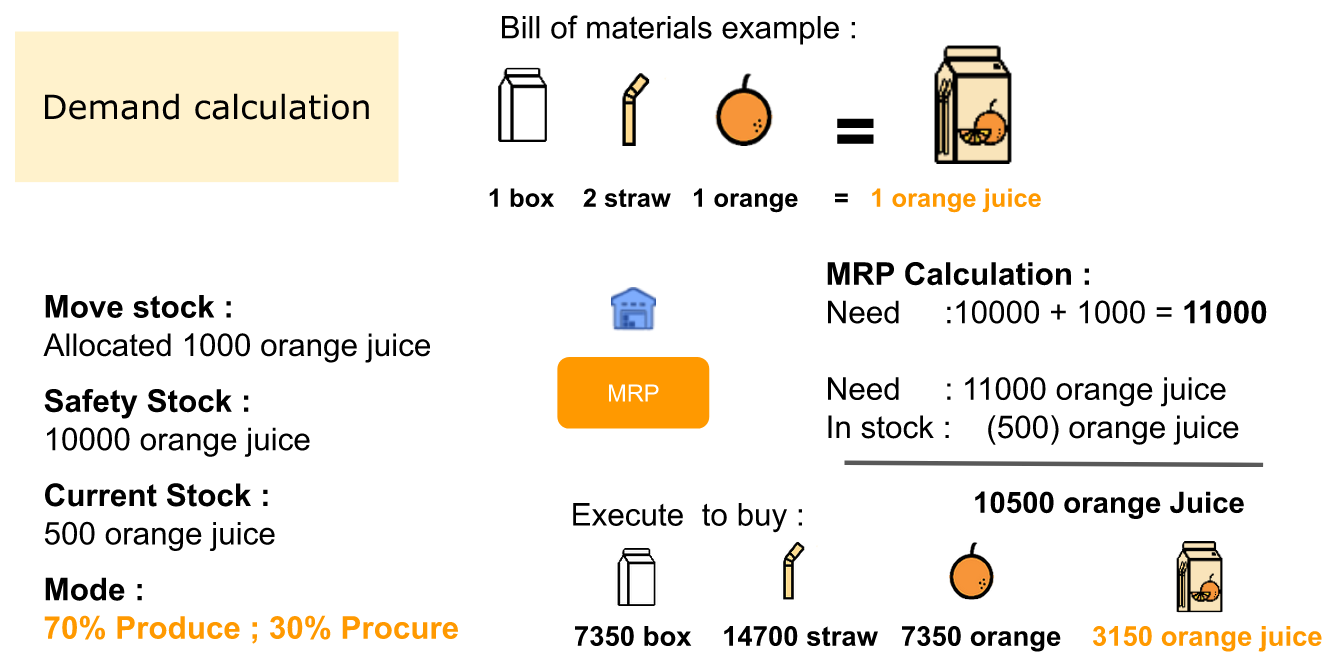
The ERP 110 course addresses the correlation between MRP and production. Additionally, learners will also have the opportunity to learn about the reasons why and in what specific situations will it be preferable to choose 100% produce, 100% procure, or a combination of the two.
ERP 111: Basic Maintenance 1
Modules turned on: Production, Finance, Wholesale, Procurement, Logistics/Warehouse, Maintenance
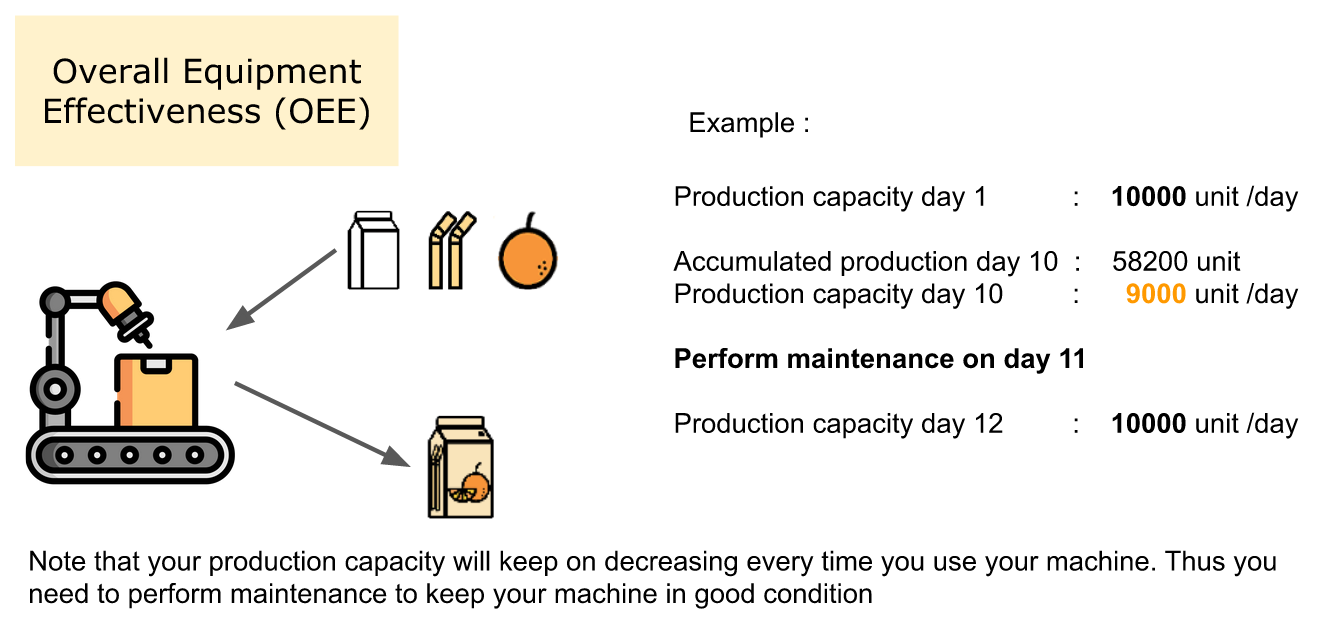
The ERP 111 course, delves deeper into the maintenance department of businesses. This means responsibility towards the equipment, its corresponding performance, and the costs required to reach the expected performance level.
In analyzing the results from these maintenance decisions, learners will be able to understand the impact of performing or not performing maintenance. This also ties in with analyzing production reports and taking into consideration machine utilization. In terms of finance, learners can weigh the cost of maintenance as well.
ERP 112: Human Capital Concept 1
Modules turned on: Finance, Procurement, Retail Sales, Human Resources
The ERP 112 module focuses on the department of human resources, which manages the workforce of the business. The human resource department organizes the recruitment process, the employment policies, benefits and welfare, training, payroll, and many other activities that concern the staff of the company.
Additionally, learners can develop a deeper understanding of OCEAN factors, which are the Big 5 personality traits, namely Openness, Conscientiousness, Extroversion, Agreeableness, and Neuroticism.
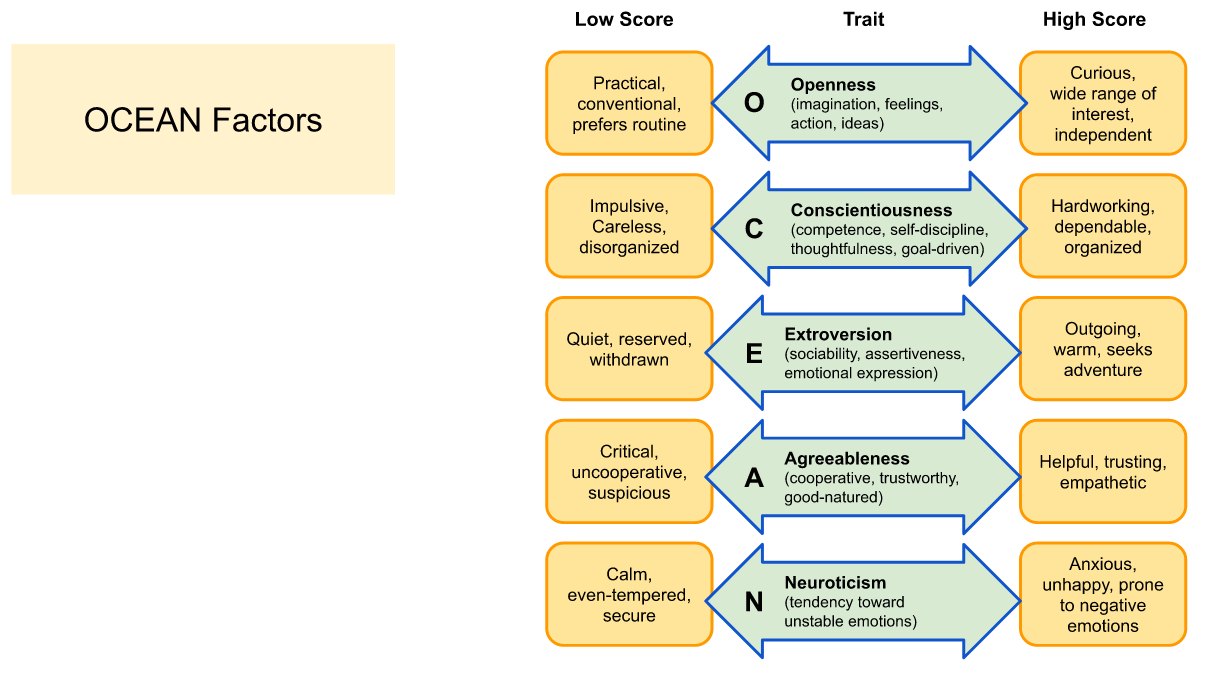
The ERP 112 course also demonstrates the correlation between OCEAN factors with staff issues or resignations, teaches learners how to calculate turnover ratios and other relevant human resources KPIs.
ERP 113: Service Business 1
Modules turned on: Finance, Human Resources, Customer Service
The ERP 113 module opens a new department for customer services. As customer service is an important aspect of the value chain for customers, providing a service to them before, during, and after a specific purchase. This course gives learners the opportunity to explore ways to deliver professional, relevant, and quality assistance to customers.
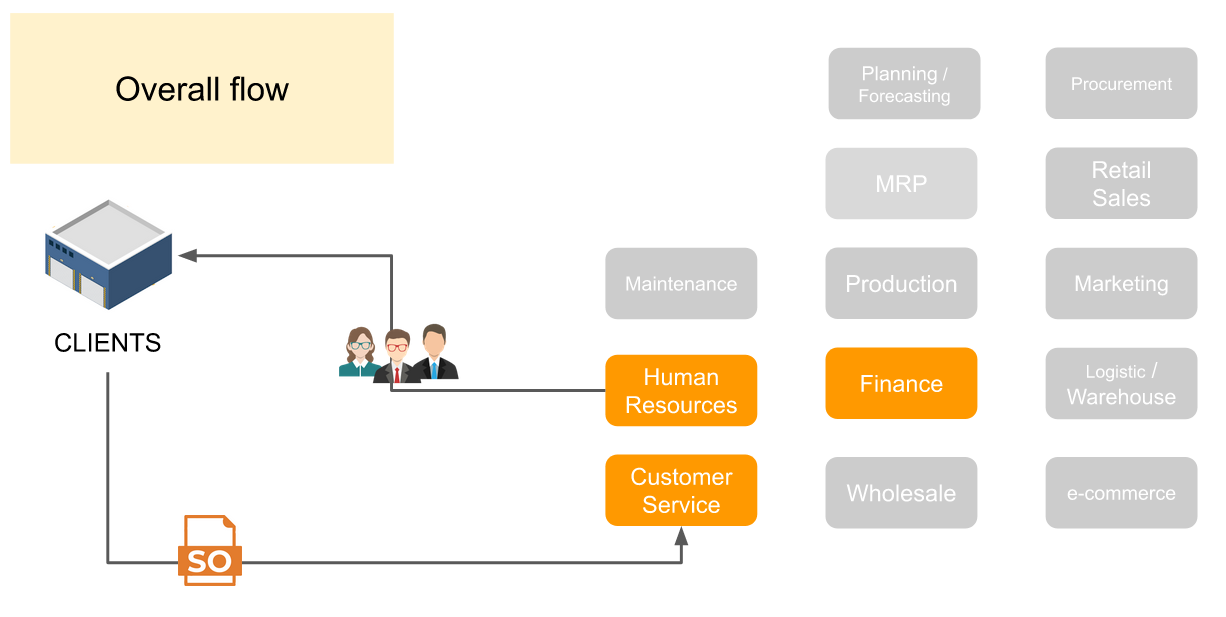
This module introduced manpower scheduling in customer service enabling learners to make decisions on which service requests to bid. This also addresses the question of whether the business has enough manpower to conduct sufficient customer service.
Tying back with the previous module, the impact of staff issues or resignations can also be observed in the customer service department. Learners can see incoming service requests, maintain a service sales order and participate in a sales service order bidding in this module. Moreover, learners conducting manpower scheduling can also directly observe the impact of staff resignation on service delivery.
ERP 114: Simple ERP Business Concept 2
Modules turned on: Maintenance, Human Resources, Customer Service, Planning/Forecasting, MRP, Production, Finance, Wholesale, Procurement, Retail Sales, Marketing, Logistics/Warehouse, E-Commerce
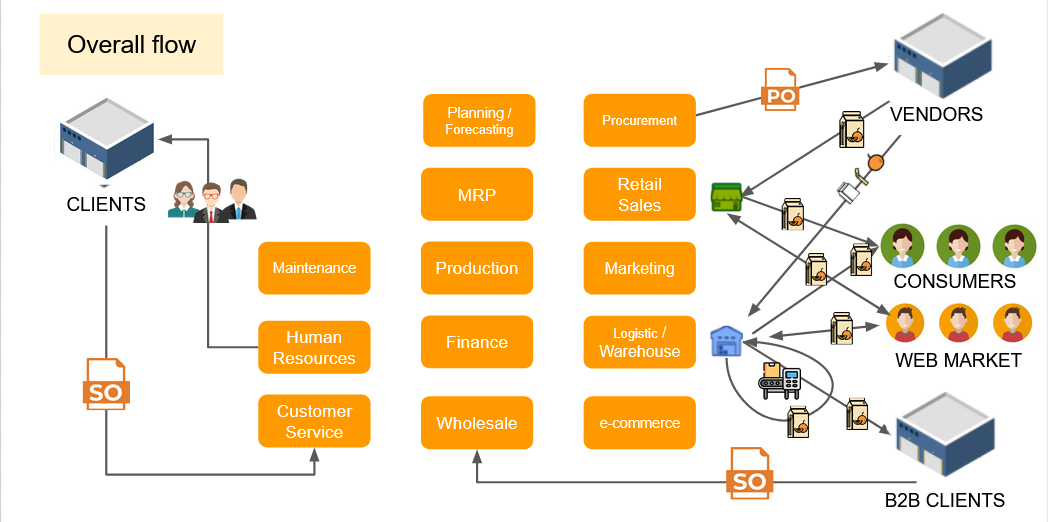
The ERP 114 module utilizes all interconnected departments to ensure that learners understand how to operate businesses as a whole and consider the external stakeholders, such as vendors, customers, B2B clients, web markets, and others.
Through this module, learners can understand all the functions and charts for finance, procurement, retail, marketing, forecast, warehouse, wholesale, e-commerce, production, MRP, maintenance, human resource, and customer services.
Dr. Scott Dell, CPA, DBA, Assistant professor of the School of Business, Francis Marion University, USA, also says, “The potential value to my students is immense. I have never seen a more complete or realistic simulation… The integration of gamification with team efforts stimulates the kind of thinking and soft skills that I like to see and could make a difference in inspiring my students as they take the knowledge learned from multiple educational disciplines and apply it within the competition.”
With an interconnected and comprehensive view of the entire business, learners can finally realize the correlation among 13 departments, analyze every situation and adapt to the changing business conditions, as well as meet the corporate and business targets.
Industry-Specific Applications
MonsoonSIM’s ERP Microcourse Series addresses the unique challenges of various industries, ensuring training is directly aligned with real-world needs. By simulating practical scenarios, MonsoonSIM empowers teams to develop the skills needed to navigate industry-specific challenges effectively.
Retail: Optimizing Inventory and Customer Satisfaction
Retail businesses often struggle with balancing inventory levels, adapting to supply chain disruptions, and responding to fluctuating customer demands. MonsoonSIM's retail-focused modules allow teams to practice managing these complexities in a simulated environment. For example:
- Master Inventory Management: Teams can experiment with balancing stock levels across multiple locations to prevent overstocking or stockouts during busy seasons.
- Respond to Supply Chain Disruptions: Simulate supplier delays or increased logistics costs, and practice recalibrating procurement schedules to ensure consistent operations.
- Enhance Customer Experience: Practice crafting dynamic pricing strategies and promotional campaigns that maximize customer satisfaction and profitability.
Imagine a scenario where a major supplier delays shipments due to unforeseen issues. Using MonsoonSIM, your team can simulate how adjusting procurement strategies and leveraging existing inventory can mitigate disruption—ensuring minimal impact on customer satisfaction.
Manufacturing: Streamlining Production and Reducing Downtime
Manufacturing teams face constant pressure to optimize raw material procurement, maintain production schedules, and manage machinery to avoid costly downtimes. MonsoonSIM provides a hands-on platform for teams to:
- Plan Material Requirements: Simulate MRP (Material Requirements Planning) processes to understand how timely raw material orders impact production.
- Optimize Production Schedules: Learn to prioritize tasks and allocate resources effectively to meet deadlines.
- Reduce Downtime: Experiment with maintenance schedules and evaluate the financial impact of delaying repairs or upgrading machinery.
For instance, a team might face a scenario where a key machine is underperforming. By using MonsoonSIM, they can explore the outcomes of investing in maintenance now versus postponing it—learning how those choices affect production timelines and profitability.
Finance: Building Resilience Amid Economic Volatility
Financial resilience is crucial in today’s fast-changing economic environment. MonsoonSIM's financial modules empower teams to practice critical decision-making in simulated market conditions:
- Master Cash Flow Management: Teams can explore strategies to maintain liquidity during unexpected economic downturns.
- Optimize Investment Decisions: Participants evaluate how to allocate funds to high-priority projects while minimizing risks.
- Respond to Economic Shifts: Simulate real-world market volatility and analyze its impact on profitability, helping teams build confidence in strategic decision-making.
For example, during a simulated market downturn, teams might need to adjust operational budgets to conserve cash flow while maintaining productivity. By experimenting with cost-saving measures in a risk-free environment, they learn to implement effective strategies without jeopardizing business operations.
FAQs for Educators for the ERP for Beginners Microcourse Series
Q: What is the Introduction to ERP for Beginners Microcourse Series?
A: The Introduction to ERP for Beginners Microcourse Series is a curriculum of interactive, simulation-based courses designed to provide educators with a comprehensive tool for teaching ERP systems across various business disciplines.
Q: Who is the target audience for these microcourses?
A: These microcourses are developed for educators who wish to integrate ERP system training into their business, finance, supply chain, and management courses. They provide a holistic approach to teaching these subjects through practical application.
Q: What subjects can be taught using the ERP Microcourse Series?
A: The series is versatile and can be used to teach a range of subjects including business administration, accounting, operations management, and information systems, among others.
Q: Can the microcourses be customized to fit my teaching objectives?
A: Absolutely. The learning objectives and simulation environment provided by MonsoonSIM are fully configurable, allowing educators to tailor the courses to their specific teaching goals and classroom needs.
Q: What are the benefits of using MonsoonSIM microcourses for my classes?
A: MonsoonSIM microcourses offer an engaging and interactive way to teach complex concepts, making learning more dynamic and effective. They also provide a practical context for theoretical knowledge, helping students to better retain information and understand its real-world applications.
Q: How do I integrate MonsoonSIM microcourses into my existing curriculum?
A: MonsoonSIM provides support to educators on how to seamlessly integrate microcourses into their teaching plans. Assistance includes curriculum mapping, technical setup, and pedagogical guidance.
Q: Is there training available for educators new to MonsoonSIM?
A: Yes, MonsoonSIM offers comprehensive training for educators to familiarize them with the platform and its capabilities, ensuring they can maximize the benefits of the microcourses in their teaching.
Q: Are the microcourses suitable for online or hybrid learning environments?
A: Yes, the flexibility of MonsoonSIM's platform makes it ideal for both online and hybrid learning environments, providing students with an interactive learning experience regardless of their location.
Q: How can I assess student performance within the microcourses?
A: MonsoonSIM includes built-in assessment tools that allow educators to track and evaluate student performance in real-time, providing valuable feedback and insights into their learning progress.
Q: How can I get started with the ERP for Beginners Microcourse Series for my classes?
A: To get started, educators can register their interest on the MonsoonSIM website, where they will be guided through the process of setting up the microcourses for their classes.

